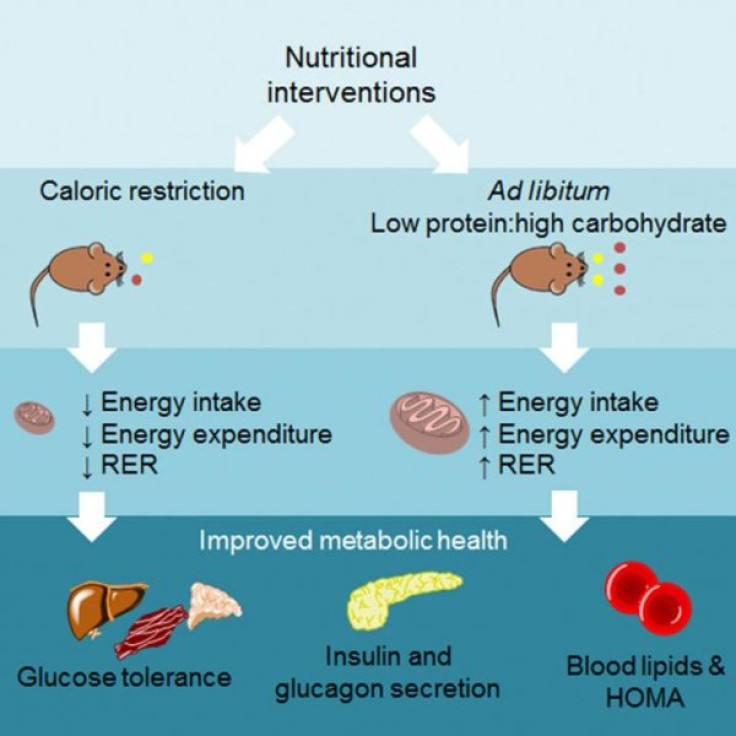Low protein intake with healthy carbs can give same results as 40% calorie cut in diet

A low protein, high carbohydrate diet could have the same effect as a low calorie diet, says a study done on mice.
The same benefits as accruing from a 40% calorie restriction in terms of blood sugar and cholesterol were seen in the animals fed on a low protein, high carb (LPHC) diet.
Despite eating more, the metabolism of mice in the group was higher than that of mice on the calorie-restricted diet, and they did not gain more weight.
Calorie restriction did not provide any additional benefits for LPHC mice. More studies are however needed to observe the long-term effects of such a diet.
"We've shown that when compared head-to-head, mice got the same benefits from a low protein, high carbohydrate diet as a 40% caloric restriction diet," says senior author Stephen Simpson, Academic Director of the University of Sydney's Charles Perkins Centre.
The investigators compared three eight-week diets varying in protein-to-carbohydrate ratio under conditions where food was restricted or food was available at all times.
The low protein, high carbohydrate (LPHC) diets delivered similar benefits as calorie restriction in terms of insulin, blood sugar, and cholesterol levels, despite increased food intake.
"An important next step will be to determine exactly how specific amino acids, the building blocks of proteins, contribute to overall health span and lifespan," says lead author Samantha Solon-Biet, also of the Charles Perkins Centre.
How LPHC diets affect long-term metabolic health and survival, as well as the specifics on type and quality of proteins and carbohydrates will need to be studied.
Once tested in humans, adjusting protein and carbohydrate intake could offer a healthier life than drastically cutting calories.
In addition to reducing food intake and body weight to improve metabolic health, modest intakes of protein and healthy carbs could improve health, says Simpson. Whole grains, legumes, and fibre-rich vegetables and fruits are good carbohydrates.
The study is published in Cell Reports.
Dietary beliefs continue to be overturned as new research churns new results. Saturated fats seen for long as the villain in increasing blood cholesterol are already seeing a return to the dining table.
Low-carb, high-fat diets are being touted as safer than a low-fat, high-carb one based on lack of evidence linking fats to heart diseases. Dietary cholesterol has no link to blood cholesterol, say studies.
© Copyright IBTimes 2024. All rights reserved.





